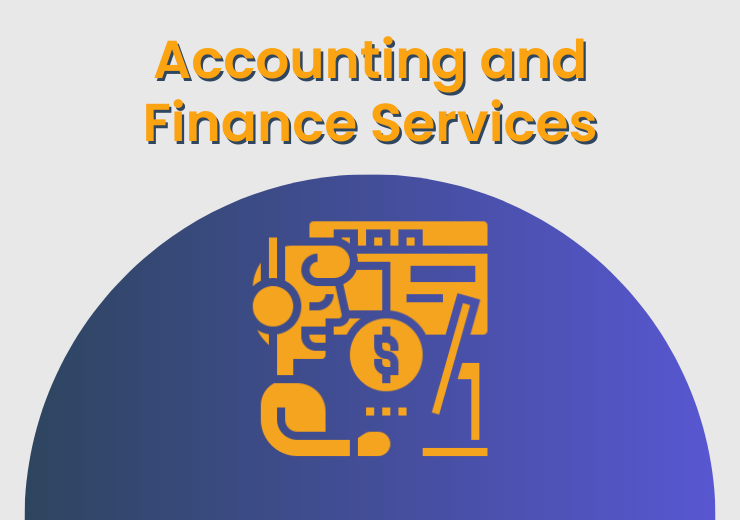Introduction
A. Definition of Accounting and Finance Services
Accounting and finance services encompass a broad range of activities vital for the financial health and strategic decision-making of businesses. Accounting involves systematic recording, reporting, and analysis of financial transactions, while finance focuses on managing assets, liabilities, and investments to achieve the organization’s goals.
B. Importance in Business Operations
The significance of accounting and finance services lies in providing accurate financial information, facilitating decision-making, ensuring compliance, and optimizing resource allocation. Businesses rely on these services to navigate the complexities of the financial landscape and thrive in a competitive environment.
C. Overview of the Article Structure
This article explores the distinctions between accounting and finance, their interconnection, the role of professional services, common misconceptions, emerging trends, choosing the right services, the future landscape, case studies, and answers to frequently asked questions.
Key Distinctions Between Accounting and Finance
A. Understanding Accounting
- Definition and Scope Accounting involves recording, classifying, and interpreting financial transactions, providing a comprehensive view of an organization’s economic activities.
- Core Functions of Accounting a. Bookkeeping: Systematic recording of financial transactions. b. Financial Reporting: Preparing and presenting financial statements. c. Auditing: Ensuring financial accuracy and regulatory compliance.
- Role in Decision-Making Accounting data aids in informed decision-making by providing insights into the financial health of the business.
B. Unpacking Finance
- Definition and Scope Finance manages the organization’s monetary aspects, covering budgeting, investment, and risk management.
- Core Functions of Finance a. Financial Planning: Creating strategies for resource allocation. b. Risk Management: Identifying and mitigating financial risks. c. Investment Analysis: Evaluating potential investments for optimal returns.
- Role in Strategic Business Planning Finance contributes to long-term planning, ensuring financial sustainability and growth.
Interconnection of Accounting and Finance
A. Collaboration between Accounting and Finance Teams
Seamless cooperation between accounting and finance teams is essential for accurate financial reporting and strategic planning.
B. Shared Objectives and Goals
Both disciplines aim to enhance the organization’s financial health and contribute to its overall success.
C. Examples of Synergy in Action
Collaboration leads to effective budgeting, risk mitigation, and informed decision-making, showcasing the synergy between accounting and finance.
Importance of Professional Services in Accounting and Finance
A. Overview of Accounting Services
- Accounting Firms and Their Role Accounting firms offer specialized services to businesses, ensuring financial accuracy and compliance.
- Types of Accounting Services a. Tax Preparation: Managing tax liabilities. b. Auditing Services: Ensuring financial transparency. c. Forensic Accounting: Investigating financial irregularities.
B. The Role of Financial Services
- Financial Consulting
- Investment Advisory Services
- Risk Management Consulting
Common Misconceptions about Accounting and Finance
A. Addressing Stereotypes
Dispelling myths surrounding accountants and financial professionals.
B. Clarifying Roles and Responsibilities
Highlighting the distinct but interconnected roles of accounting and finance.
C. Dispelling Myths in the Industry
Debunking common misconceptions about the nature and scope of accounting and finance services.
Emerging Trends in Accounting and Finance
A. Technological Advancements
- Impact of AI and Automation The role of artificial intelligence in streamlining accounting processes.
- Blockchain in Accounting Utilizing blockchain for enhanced security and transparency in financial transactions.
B. Remote Work and Virtual Collaboration
The shift towards remote work and its impact on the collaboration between accounting and finance professionals.
C. Sustainable Finance Practices
Integrating environmental, social, and governance (ESG) factors into financial planning.
How to Choose the Right Accounting and Finance Services
A. Assessing Business Needs
- Size and Scale Tailoring services to meet the unique needs of small, medium, or large businesses.
- Industry Specifics Adapting services to align with the specific requirements of different industries.
B. Evaluating Service Providers
- Reputation and Track Record Assessing the credibility and performance history of accounting and finance service providers.
- Customization Options The importance of tailored services to meet the unique demands of each business.
The Future of Accounting and Finance Services
A. Anticipated Changes and Innovations
- Evolving Regulatory Landscape Adapting to changing financial regulations and compliance standards.
- Shifting Business Expectations Aligning services with evolving business priorities and expectations.
Case Studies: Successful Implementation of Accounting and Finance Services
A. Real-world Examples
- Improved Financial Management Demonstrating instances where effective financial management led to business success.
- Enhanced Decision-Making Processes Highlighting how informed decisions based on accounting and finance services contribute to organizational growth.
Frequently Asked Questions (FAQs)
A. What is the fundamental difference between accounting and finance?
Clarifying the distinct roles and functions of accounting and finance.
B. How can businesses benefit from professional accounting services?
Outlining the advantages of accurate financial reporting and compliance.
C. Is it necessary for small businesses to invest in financial services?
Explaining how tailored services benefit businesses of all sizes.
D. What role does technology play in modern accounting practices?
Discussing the impact of technology, AI, and automation on accounting processes.
E. How can businesses ensure compliance with changing financial regulations?
Offering insights into staying compliant with evolving regulatory landscapes.
F. Are there common challenges in implementing accounting and finance services?
Addressing challenges and providing solutions for effective implementation.
G. What trends are shaping the future of accounting and finance?
Discussing the emerging trends that will influence the industry’s future.
H. How do accounting and finance services contribute to business sustainability?
Exploring the role of these services in promoting long-term business sustainability.
I. Can businesses integrate environmental, social, and governance (ESG) factors into financial planning?
Highlighting the importance of incorporating ESG factors into financial strategies.
J. How do businesses find the right balance between risk and return in financial decision-making?
Offering insights into optimizing risk and return for strategic decision-making.
Conclusion
A. Recap of Key Points Summarizing the key distinctions, importance, interconnection, professional services, misconceptions, trends, and considerations in choosing accounting and finance services.
B. Encouragement for Businesses to Embrace Comprehensive Accounting and Finance Services Emphasizing the benefits of comprehensive services for organizational success.
C. Closing Thoughts on the Evolving Landscape Concluding with reflections on the dynamic and evolving nature of the accounting and finance services landscape.

